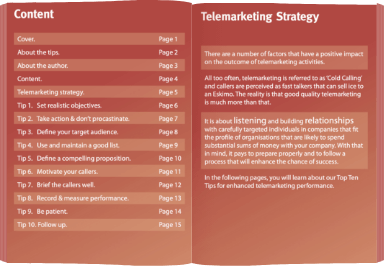We recently recorded a Google Hangout on the subject of Lead Generation Tips for SMEs and felt we should also document some of the key aspects of lead generation for small businesses. Below is the thrust of our hangout and some essential Lead Generation Questions for Small Businesses to consider.
Every small business needs to have a plan when it comes to lead generation. It goes without saying that referrals and repeat business need to be the lifeblood for SME’s but very few of us can relax and assume that this plus fresh enquires will just come to our door and give us the results we want.
Hence, most new businesses need to develop some kind of strategy for new business and for developing a pipeline for new leads.
It comes down to a number of factors and questions and these include:
-
-
- Do you understand your target market? – The more you can refine that, the easier it is to search for the kind of businesses that will be profitable for you and the lower the cost of finding these and converting them.
- Where do those customers go for information, knowledge, communication, networking, and so on? – It’s imperative that you identify the places where you can engage with prospects either on a proactive basis (phone, email, and advertising) or through things like exhibitions or networking and social media. There are likely to be all manner of ways to reach your target market that you need to learn what these are and evaluate their merits and costs.
- DIY vs Outsourcing? – Another important aspect of new business development is the extent to which you can do stuff yourself versus outsourcing. Clearly, doing it yourself may seem more cost-effective and cost may be a major factor. In that case, you need to consider the opportunity cost versus doing other things where you can add value to the business. It’s often hard for smaller businesses as they are managing the business most of their time so they have limited time for new business activities. Hence, it’s always a trade-off but an important decision nonetheless.
- What resources and skills do you have in the house? – That doesn’t only mean people. it’s also about systems and processes. If you have these and you can deploy them, then it makes sense to use them. However, that isn’t always the best route and especially when it comes to skills. Some marketing requires specific knowledge whether that’s knowing how to negotiate trade media rates through to using social media in a way that makes an impact in a lead generation rather than just throwing sales messages onto Twitter and Facebook. Or it might be knowing how to get past a gatekeeper on a cold call or how to build rapport with a decision-maker in order to set up a new business appointment. Likewise, you need the right tools to do the job. If you’re serious about business development, you probably need a robust CRM system to capture and manage campaign information. Work out to what extent you can manage this internally and where you need support.
- What Kind of Budget Should Small Businesses Devote to Business Development? – Once you’ve established the best ways to reach your target audience and assessed what you can do yourself or in-house, you then need to consider the amount you want to invest in activities for your new business. That depends on a number of things. These include:
-
-
-
-
- The level of growth you’re aiming for – How aggressive do you want to be? What level of new business just comes in organically without the need to be proactive? The less you need, the less you will probably need to spend to achieve that target.
- Your cash reserves and Cashflow – Clearly, if you’ve got money to invest, it’s easier than where you don’t. Every business lives or dies by its cash flow and they need to manage that carefully. It may be that the business needs an overdraft facility or even a growth loan. That’s where you may need some advice.
- The cost of each likely method of marketing – Some methods are more expensive than others. You may be able to put together a social media campaign yourself and use Facebook Boost to reach a wide audience for less than £100 whereas attendance at an exhibition including stand space, stand to build and manpower will cost you £000’s.
-
-
There is no right answer to the budget question. Some companies suggest that you spend 3% of turnover. That’s all well and good if your sales are high. But what if your margins are really low like in the travel industry or even in automotive. That 3% might significantly eat into your bottom line. Likewise, if your revenue is low then 3% of nothing is still nothing.
It absolutely depends on your goals and your appetite for investment and your understanding of what the best routes to your market are. If you don’t know, get some advice. There’s a great program of investment from the Government called GrowthAccelerator and that enables some SMEs to get some funding for coaching or training around marketing. I did some work with a client a few weeks ago in Plymouth and it halved their costs.
So, it’s very much down to the owner or management of the business to consider the objectives before the company works out what budget to allocate. But it also requires knowledge of all the options available and likely costs.
Final Advice for Small Businesses Wishing to Grow
I believe that it comes down to the following main points:
-
-
- Be clear about growth targets
- Put together a plan of action including measures around ROI
- Research and understand the marketing and business development options available to you
- Decide what you can feasibly do yourself and what you need to outsource
- Focus activity on where it has the most impact and where your target prospects can be most easily targeted
- Be committed – you shouldn’t do new business in half measures. They say that it’s often the 6 -12th contact that generates an opportunity so don’t stop too soon. You’re building a pipeline so ongoing activity is what builds that pipeline. You must assess performance and change direction if need be. But it does mean you need to have realistic expectations about the speed of return.
- Get advice where you need it whether that is from your accountant or other advisors, local support groups, or external marketing experts
-
We hope that you enjoyed these brief lead generation tips for small businesses. If you’d like to know how GSA Business Development can help generate growth for your business or you’d like to book one of our new business development and marketing strategy workshops, contact us now on 0845 658 8192 or use the form on this site.






